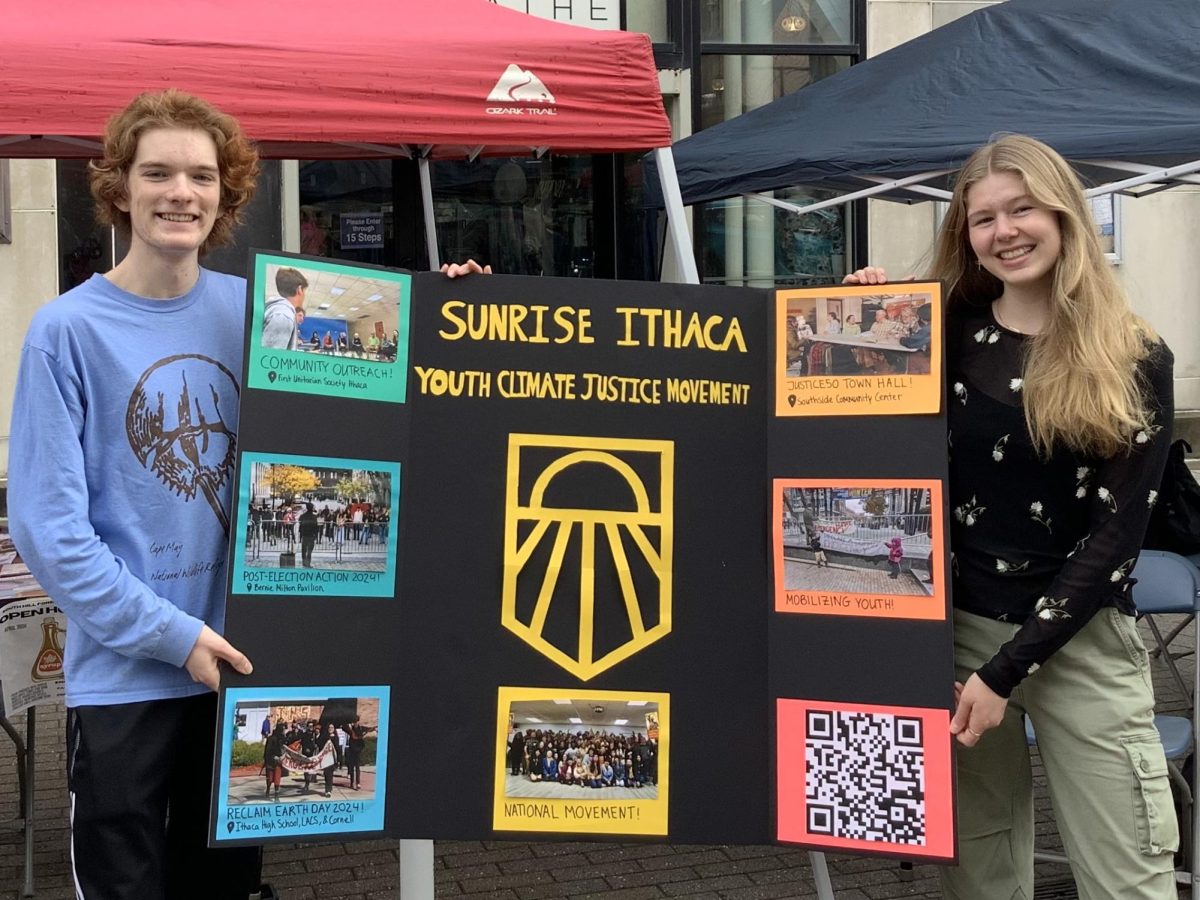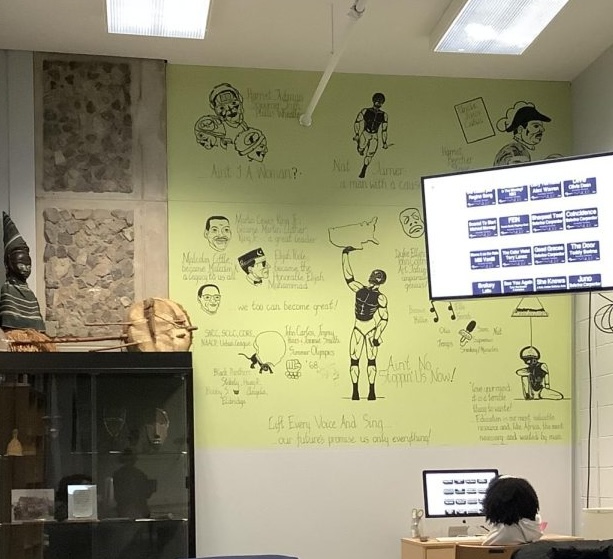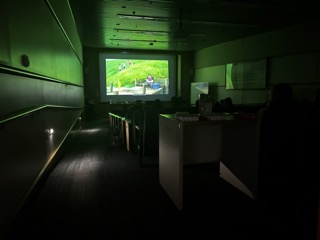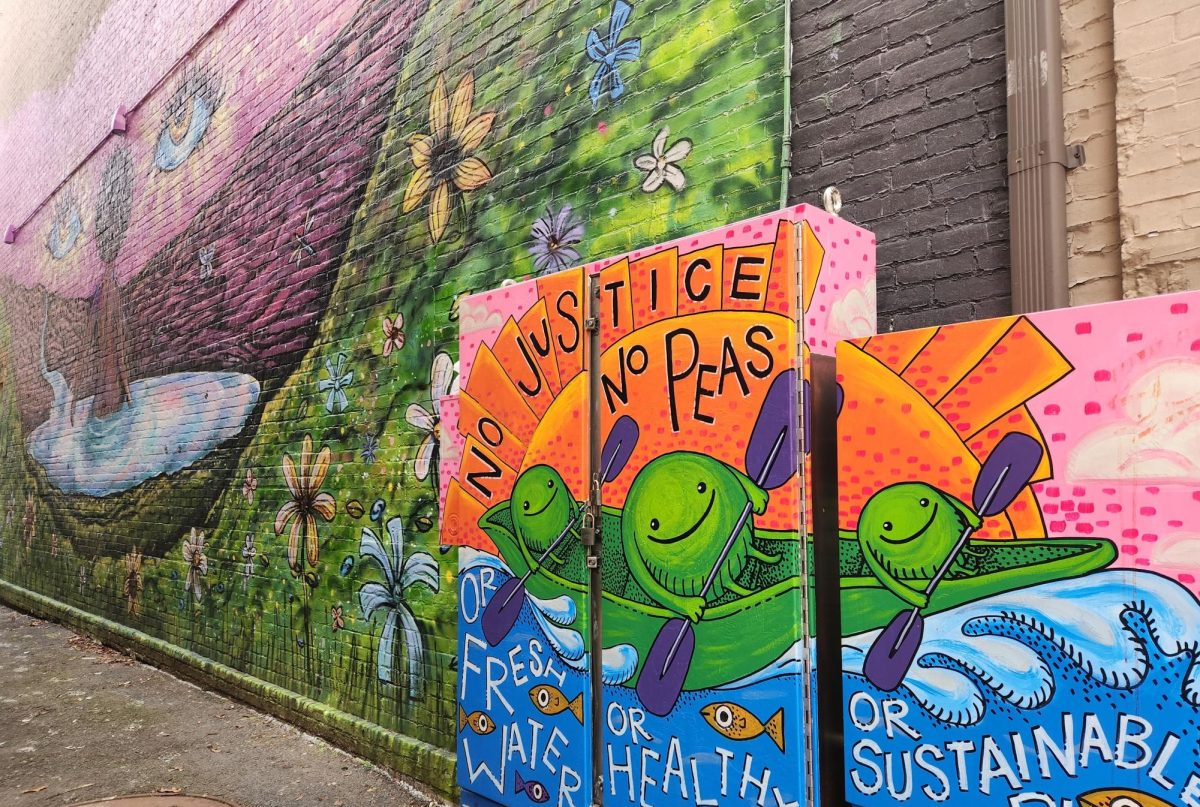A simple Google search of the term “theatre” provides a Wikipedia definition of the word. “Theatre or theater is a collaborative form of performing art that uses live performers, usually actors or actresses, to present the experience of a real or imagined event before a live audience in a specific place, often a stage.”
On a base level, that is true. However, in Ithaca, New York, many residents, educators, and students agree that the medium of art is much more than just entertainment and this area, in particular, provides a plethora of opportunities to participate in or see a theatrical production. Theatre is a medium of art that can provide so many different things to casts, crews, and audiences alike.
“There’s just so much,” said Priscilla Hummel, a theatre professor at Ithaca College and founder/producing artistic director of Walking on Water Productions, “It’s such an artistically rich community.”
How students see theatre
Regardless of age, many members of the Ithaca community are partaking in theatre in one way or another. Ithaca is a densely populated college town which increases diversity and allows for more stories to be told.
Ithaca College has a well-renowned theatre program and works collaboratively with artists and companies in the community to put on their productions year after year. Students in the program feel that the college makes their show selections carefully to include all actors.
“I would say that there’s something for everyone, specifically theatre at IC,” said Christian Lawson, an acting major at the college. “When they pick the seasons, they try to cater to the community of Ithaca but also the community that they cultivate by people coming in to attend school… there’s always something thought-provoking or something that’s so showstopping… we’re doing everything and we’re welcoming and establishing everyone.”
Coincidentally enough, the Ithaca College theatre department is currently collaborating with the Kitchen Theatre to put on their production of The Liar by David Ives which is running in April.
Local experts on the theatre landscape
Seats in the Hoerner Theatre at Ithaca College (Photo by Alecia Solorzano/Ithaca Week)
“I think theatre is important to all communities,” said Sarah Plotkin, a local director, educator, and cultural worker. “It’s one of the ways we build culture. I think this community especially appreciates theatre. This is a super creative community. We have people here from all over the world. We have people here with a lot of different and amazing skill sets. Theatre is something here that people want more of, people crave. So it’s really nice to be in a community that so deeply values theatre.”
Theatre experts in the area all tend to have different approaches to the way they utilize the medium of art. Some may delve into the deeper roots of a social issue, use various techniques, or just love an environment where people sing and dance. Whatever it may be, those who work in the theatre have a common goal of bringing people together.
For example, on the more positive side, “From a lot of our sister companies, we get a lot of really rich, challenging, engaging, and motivating stories and pieces of theatre that are happening all around and in Ithaca,” Hummel said. “And that’s great. There’s also, I think, room for stories that are going to bring us joy and laughter and find ways to be inspired through that lens as well.”
However, while other theatre experts agree, they also feel the need to address other issues in addition to the positive theatre-going experience, “I’ll just say, I think that theatre can be so beautiful and so helpful to people,” Plotkin said. “I also think that theatre can be incredibly oppressive. A lot of the models that we have for making theatre come historically from commercial theatre but, we’re using them in noncommercial spaces that are really harmful. So I think there’s a lot of thinking that the theater community, the theatre education community, and the applied theatre community need to be doing to make sure that our theatre is not perpetuating oppression. Even when we’re saying that it’s doing something, even when it has the possibility of doing something really beautiful, it can also be perpetuating systems of oppression.”
Incorporating theatre into our lives
Other takeaways from the younger people in the local theatre landscape include some traditional life skills that others may not recognize they are gaining when walking away from the theatre.
Christian had Priscilla as a professor at Ithaca College and recalled some skills that she had previously taught him that still show up in his everyday life.
“Priscilla taught us many things,” Lawson said. “You didn’t need to be an actor or do a scene to still benefit from theatre. We would still understand [those skills] when we were just simply laying down and relaxing. I had never really thought that relaxed in a while and I feel like I could be speaking for so many of my classmates when I say that and it’s very important. You learn how to relax, you learn how to use your full voice, you know, stay grounded, and confident. Those are things that a lot of people unfortunately don’t have. Ultimately, we all need that.”
Hummel, Plotkin, and Lawson encourage people in the Ithaca community to continue indulging in theatre. Whether it be to gain new skills, leave feeling happy and joyful, or change tactics to combat oppression. Theatre is a medium that can do it all, especially in Ithaca, New York.
“I think we should always have a little theatre in life,” Lawson said. “Always go to the theatre. You have a theatre, go to the theatre. Support your theatre artists and your theatre makers. Join the theatre. There’s always something there’s always something to do.”



















